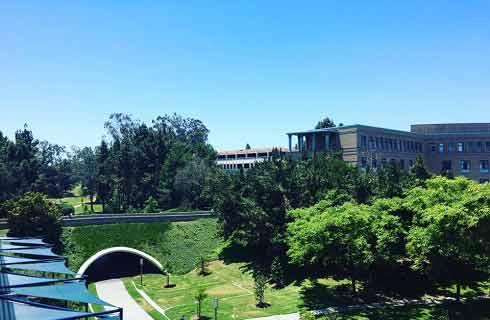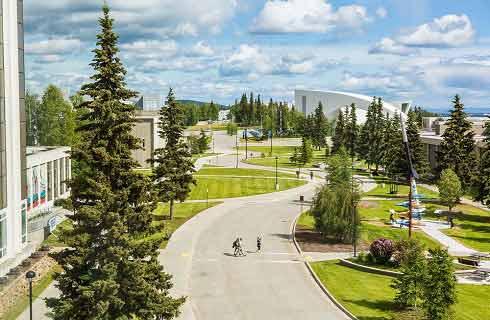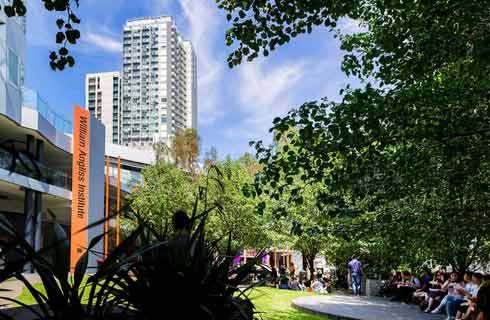理学硕士(细胞制造与治疗)
MSc (Cellular Manufacturing and Therapy)

学历文凭
Masters Degree (Taught)

专业院系
College of Medicine, Nursing and Health Sciences

开学时间

课程时长

课程学费

国际学生入学条件
IDP—雅思考试联合主办方

雅思考试总分
6.5
- 雅思总分:6.5
- 托福网考总分:88
- 托福笔试总分:160
- 其他语言考试:Pearson PTE scores of 61 with no less than 6.5 in any component.
CRICOS代码:
申请截止日期: 请与IDP联系 以获取详细信息。
课程简介
The primary objectives of the MSc in Cellular Manufacturing & Therapy at the University of Galway is to A) provide formal training in cellular bioprocessing for clinical application and B) cultivating a rigorous scientific underpinning for the development of a cellular therapy. The course curriculum balances the scientific aspects of cellular therapy (in 3 modules), bioprocessing and manufacturing regulation (in 2 modules) and offers optional modules in cancer biology, business, clinical trials and bio-ethics. A student’s practical skills are developed beyond the classroom laboratory activities with supplemental activities such as workshops in sterile gowning and a 4-month work or laboratory placement, thereby gaining research or enterprise-centric skills. When launching, this MSc programme was the first of its kind worldwideModules in the biology underpinning the therapeutic application of mesenchymal stromal cells, immunotherapy and induced pluripotent stem cells, three types of cellular therapy currently in translation for clinical application.Instruction by a multidisciplinary team of experts, the first to translate cellular therapies from the bench to clinical application in Ireland.Four-month placement where student are embedded in a host environment corresponding to their carer of choice.Potential employers are seeking graduates of this course to fill gaps in their current staffing. To that end, students enrolled in the MSc programme will complete a 4-month long dissertation project that will enable them to develop technical and transferrable skills while networking within a successful organization. Historically, our students were placed in organizations such as the Centre for Cellular Manufacturing Ireland, Galway Blood and Tissue Establishment, Charles River, Stempeutics, Avectas, Cancer Trials Ireland, Regeneron, Intas Pharmaceuticals, Aerogen, Hebei Medical University, Alexion Pharmaceuticals, Hi-Tech Health and Valitacell.Our graduates have successfully secured employment as plant technologists, production assistants, manufacturing biotech associates, cell culture scientists, cell culture technical support, in quality assurance and assay development or as research assistants. They are employed by world leading organizations such as Takeda, Autolus, University of Galway, Fuji Diosynth Biotechnologies, Avectas, Abace-Biology and Charles River laboratories.
相关申请
 预科
预科 奖学金
奖学金 实习机会
实习机会 在校学习
在校学习 跨境学习
跨境学习 校园授课-线上开始
校园授课-线上开始 在线/远程学习
在线/远程学习
开学时间&学费
学费信息仅供参考,请与IDP联系以获取详细信息
| 开学时间 | 时长 | 学费 | 地点 |
|---|
学校排名

世界排名301
数据源:
泰晤士高等教育世界大学排名
关于爱尔兰国立高威大学

爱尔兰国立高威大学创建于1845年,建校之初只有68名学生,在漫长的历史中建立了良好的声誉。如今,该校有1.8万多名学生就读,跻身全球大学300强之列(QS世界大学排名)。爱尔兰国立高威大学虽然地处全球较小的大学城之一,但因出色的研究和优质的课程而远近闻名。爱尔兰国立高威大学开设有60多种不同的本科课程,还开设有广泛的研究生课程和非全日制夜校课程供学生选择。该校下设五个学院,开设有各种课程,其中很多课程涉及全球研究项目。爱尔兰国立高威大学热忱欢迎国际学生到该校学习。该校按国家/地区介绍具体的资格要求,简化申请流程,让所有申请者都能清楚地了解需要符合什么条件才能申请。学生在爱尔兰学习期间,该校国际办公室为学生提供支持,帮助他们融入大学生活。高威是一座迷人的城市,坐落在爱尔兰西部美丽的海岸线上,到处都是独立经营的商店和咖啡馆。传统与现代的便利相结合,即使最现代化的咖啡馆或小酒馆也有着引人入胜的历史。2020年,高威被著名的《孤独星球》(Lonely Planet)评为全球五佳城市之一,除此之外,高威还经常被一些重要刊物(包括《旅游+休闲》杂志和《康泰纳仕旅行者》杂志)评为最友好的城市之一。这是一个极好的求学之地,热情欢迎来自世界各地的人们。
本校相关课程

通用英语(标准)
学历文凭
English Language
开学日期
课程费用总额


通用英语(精读)
学历文凭
English Language
开学日期
课程费用总额


硕士预科英语语言衔接
学历文凭
English Language
开学日期
课程费用总额


10周雅思课程
学历文凭
English Language
开学日期
课程费用总额


应用行为分析哲学博士
学历文凭
Ph.D.
开学日期
课程费用总额


考古哲学博士
学历文凭
Ph.D.
开学日期
课程费用总额

其他相关课程

生物医学学士
 皇家墨尔本理工大学
皇家墨尔本理工大学学历文凭
Bachelor Degree
开学日期
课程费用总额


哲学硕士-生物医学和生物化学
 澳大利亚国立大学
澳大利亚国立大学学历文凭
Masters Degree (Research)
开学日期
课程费用总额


生物医学学士
 詹姆斯·库克大学
詹姆斯·库克大学泰晤士高等教育世界大学排名:361
学历文凭
Bachelor Degree
开学日期
课程费用总额


理学学士(海洋生物学)
 弗林德斯大学
弗林德斯大学泰晤士高等教育世界大学排名:307
学历文凭
Bachelor Degree
开学日期
课程费用总额


理学学士-海洋生物学(荣誉学位)
 弗林德斯大学
弗林德斯大学泰晤士高等教育世界大学排名:307
学历文凭
Bachelor Degree with Honours
开学日期
课程费用总额


城市与环境规划学士/海洋生物学理学学士
 格里菲斯大学
格里菲斯大学泰晤士高等教育世界大学排名:258
学历文凭
Dual Degree
开学日期
02 March 2026
课程费用总额
AUD 167,500










 爱尔兰
爱尔兰